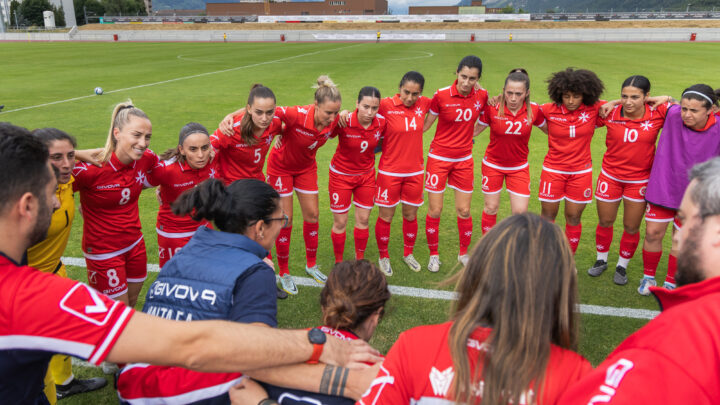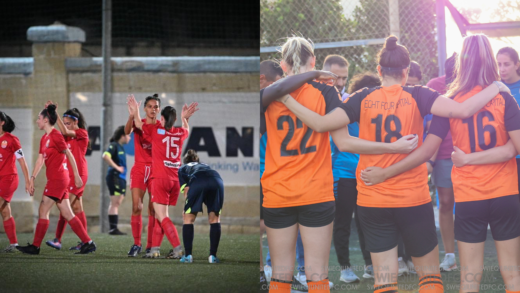UEFA has introduced the first-ever minimum standards framework for women’s national teams after consultation with players, coaches, associations and FIFPro Europe. Each national association will be granted €100,000 per year until 2028 to implement the minimum requirements. It covers coaching, training, medical treatment, player welfare, remuneration and accommodation, among others.
Objectives & Key Aspects
The framework was created as an attempt to level the playing-field between European countries, by enforcing a minimum level of conditions and structures across teams and associations for the women’s senior national teams. It was developed through consultation with players, coaches and FIFPro Europe.
It is supported by the UEFA HatTrick Incentive Programme, which will grant each national association (such as the Malta Football Association), €100,000 per year to implement these minimum standards for its women’s senior national team. Once fulfilled, the associations can opt to further enhance the conditions and environments of the senior national team players or to use it to improve the sporting and technical provisions at youth team levels.
Associations will be required to provide yearly feedback to UEFA, including an annual breakdown of the use of the HatTrick VI incentive payments. Meanwhile, UEFA will have the responsibility of assisting national associations with benchmarking and analysis, creation of development plans where requested and support with information on best practices.
The requirements are split into ‘sporting and technical provisions’, as well as ‘good governance’.
Sporting and Technical Provisions
‘Sporting and technical provisions’ include a requirement that the national association must appoint a full-time coach with a Pro licence and that they must be exclusively dedicated to the senior women’s national team. They also outline that international windows must be used for matches, training camps and friendlies. In terms of travel, it stipulates that the most direct flight option must be chosen and that players should arrive at least 24 hours before the match.
It also covers that accommodation should be close to training, gym and recovery facilities, and that teams should have access to technologies used by the association. Teams should also have dedicated changing rooms with seated toilets, sanitary provisions and breast-feeding facilities. It also stipulates that match, travel and training kits are tailored for the athletes.
Finally it also stipulates that there should be at least one medical doctor, as well as at least two sports physiotherapists, who would be available during matches and training, among other relevant scenarios.
Good Governance Provisions
These provisions highlight a requirement to establish a written compensation policy on expenses and remuneration that also cover any potential loss of income from third party employment for semi-pro or amateur athletes who would be on international duty. The written policy should also cover performance payments, and the timing of reimbursement and proof-of-payment processes.
In regards to player welfare policies, it requires national associations to provide written policies in consultation with the national team players when drafting or revising guidelines related to parental & pregnancy, procedures and channels for responding to harassment and discrimination, as well as arrangement of educational opportunities for national team players provided by the national association or UEFA.
Finally, the provisions also include a requirement to establish media and marketing policies that promote women’s football, which specifically target match locations and venues to increase awareness and interest.
The full document detailing all the provisions may be read online.
Kessler & Gregorius’ Comments
The UEFA Managing Director for women’s football Nadine Kessler said, “This project is an important one and is a starting point to raise the bar across all women’s national teams. Having the best possible conditions on and off the pitch is absolutely vital for players to perform and in return bring success to their national teams. We have a highly competitive landscape nowadays, so standards must be grown alongside them. Only then can teams unleash their full potential and we can safeguard the longevity of players’ careers.”
Additionally, FIFPro Europe Director of Global Policy & Strategic Relations for Women’s Football, Sarah Gregorius, noted “We welcome this important step for women’s national team football, which is the outcome of an inclusive consultative approach involving players and FIFPro Europe. The framework promotes and incentivises standards that put the protection and needs of the players at its heart, and they thoroughly deserve this. We remain fully engaged for further positive developments to occur.”
Lead Image: Maxime Aliaga
Stay up to date by following The Sporting Fan on social media: Instagram ~ Facebook ~ X




2 Responses
[…] is separate from the minimum standards framework that UEFA brought out for national teams, which also addresses maternal factors (among other things), but […]
[…] UEFA Launches Minimum Standards Framework For European Women’s National Teams […]